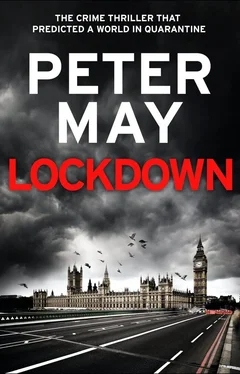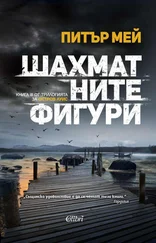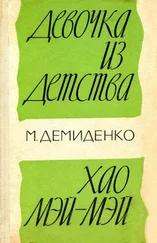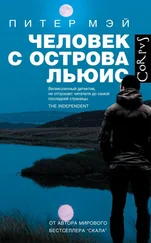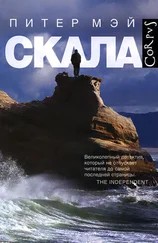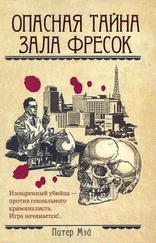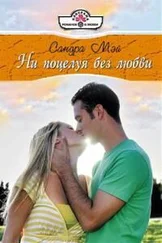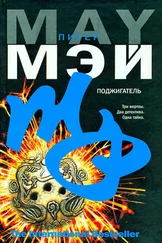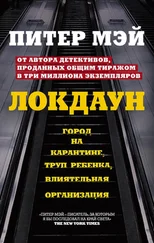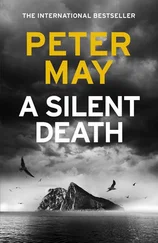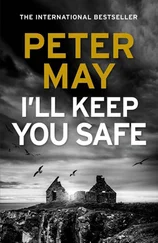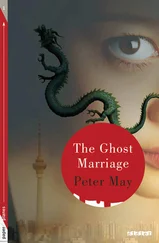It seemed extraordinary to MacNeil that people would want to be out partying given the dangers of infection, and the lawless, lethal streets that they would be required to negotiate safely after curfew. Never mind the fact that it was illegal. But then, he thought, a restless generation of kids with energy and money to burn simply weren’t going to stay at home and watch telly with mum and dad. He supposed they probably got a kick out of it, living life on the edge. Better than drugs. But he was willing to bet that the patrons of the Black Ice Club, on the other side of that steel door, would be rich kids from Chelsea and South Ken. Kids from privileged homes, with daddy’s money in their pockets. Not the sort of place a crematorium worker from a South Lambeth slum was likely to frequent.
He hammered on the steel door and stood back, waiting. Nothing happened. He hammered again, and this time a small metal hatch slid open. Light and music spilled out into the darkness of the courtyard, and a face peered suspiciously into MacNeil’s. ‘What do you want?’
‘A drink.’
‘Don’t know you.’
‘I’m a friend of Ronnie’s. Ronnie Kazinski. He told me a thirsty man could get a drink here any time. And I’ve got a hell of a drouth.’
‘How did you get through the curfew?’
‘How does anyone?’
‘Most people arrive before it starts and leave when it finishes.’
MacNeil shrugged. ‘I guess I must have been lucky.’
The bouncer looked at him for several long moments before sliding the hatch shut. For a while, MacNeil thought he wasn’t going to open up. And then he heard the scrape of metal bolts being withdrawn, and the door swung in. The bouncer was a big man, but not as big as MacNeil. His head was shaved, and he wore a leather waistcoat over his naked chest. A beer belly hung low over baggy jeans. A grubby-looking white surgical mask covered the lower half of his face, and he regarded MacNeil warily before flicking his head to indicate that he should come in.
‘Cheers, mate,’ MacNeil said. ‘Where’s the bar?’
‘Downstairs.’
As he went down the stairwell, the music rose to greet him like a physical assault. A brain-numbing level of decibels. Coloured lights were soaked up by black walls, and when he reached the dance floor, maybe two hundred people moved in one undulating wave of sweating humanity, lost in some primordial trance, swaying to sounds that owed more to distant tribal roots than to a sophisticated modern society. They all wore white surgical masks, like a uniform. And in the ultraviolet overhead strips, the masks glowed weirdly in the dark, like a strange, luminescent sea of floating gulls.
There was a small stage on the far side of the dance floor, and two scantily clad females wearing pointed white hoods with slits cut for eye holes swung their hips and gyrated in slow hypnotic circles. A bar stretched along the length of the wall to the right. Two young barmen wearing army-style gas masks were busy serving customers lined up three deep. People lowered their masks to drink, then pulled them back into place. Used glasses were set in circular racks that slid into huge dishwashers to disinfect them for further use. Steam rose in great clouds from behind the bar into air already thick with heat and sweat. A perfect incubator for infectious disease.
MacNeil shoved his way through the drinkers to the bar. Anyone who objected was likely to get an elbow in the face. Vocal protest was drowned by the music. A dyed blond barman with black roots regarded MacNeil warily. MacNeil was older than the usual clientele, much more conservative, and he still had his coat on, in spite of the heat. Besides which, his face was bruised and lacerated on one cheek with tiny cuts from the glass on the forecourt of the South Lambeth flats. ‘Whisky,’ he shouted. ‘Single malt. Glenlivet if you have it. And a little water.’ It seemed like a long time since he’d had a drink, and now the anticipation of it was almost overwhelming. But just the one. He knew that more than one would weaken resolve and lead him into a downward spiral of sorrow drowning.
A glass with half an inch of amber, and a small jug of water, were banged on the bar in front of him. He handed over a fiver and got no change. He diluted his whisky fifty-fifty and took a sip. He turned to the barman. ‘That’s not Glenlivet!’
‘You said if I had it. I don’t have it.’ No apology.
MacNeil took another sip. It was just some anonymous blend. He was disappointed by the taste of it, but enjoyed its warmth burning all the way down into his stomach. Then he tipped the glass and it was gone in an instant. He thought about all the times he’d had just one more, anything to put off the moment when he would have to go home. Back to Martha. He thought about all the times Sean had been asleep by the time he got back. All those missed moments. All those wasted hours. And he turned and shouted at the barman for another.
When it came he caught the barman’s wrist and leaned over the bar. ‘Is Ronnie in tonight? Ronnie Kazinski?’
But the barman raised a hand to shoosh him as the music stopped, suddenly, on a single drum beat, and reverberated around the club for several seconds. The sea of masks stopped heaving, and there was some sporadic applause as the dancers and drinkers all turned expectantly in the direction of the stage. From a door somewhere at the back, a young man who looked to be in his thirties emerged carrying an artistically tied white cloth bundle suspended on a pole over his shoulder. It looked for all the world like the cartoon bundle in which a stork would deliver a baby. And for a brief moment, a fleeting memory of Laing winged its way through MacNeil’s thoughts.
The hooded dancers had melted away, and somehow left behind them a small folding table centre stage. There were some cheers and whoops as the man placed his bundle on the table. He was dressed all in black. Even his mask was black, and he was almost subsumed by the black wall behind him. The white upper-half of his face glowed in the fluorescent strip lights, and seemed to dance around, disembodied, above the glowing bundle on the table. His hair was thin and wispy, and scraped back across a balding scalp. He spoke into a microphone, leaning on the pole, and his dead voice boomed out above the heads turned, as one, towards him.
‘Art,’ he said, ‘real art, is about life on the edge. It’s about pushing the boundaries as far as they will go, and further. What is a life lived within boundaries set by others? We must make our own boundaries, and draw them in ever widening circles, encouraging others to go with us. We are not our parents, or our parents’ parents. We are we. And we are here and now. The future is ours, and only what we make it. Only by treading that razor-sharp path between life and death, between good taste and bad, between acceptable and unacceptable, will we find true meaning in our lives.’
He looked around the upturned faces watching him in breathless silence. They knew that he was going to do something awful. It’s what most of them had come for. This was underground art. It was what had made the club cult before the emergency. MacNeil looked on, fascinated, unexpectedly caught by the hypnotic quality of the performance, completely unprepared for what was to come.
The man in black leaned over the table and theatrically pulled one end of the knot that held the bundle, and it fell open, revealing a strange, bloody-looking mulch that seemed devoid of form or shape. There was a gasp from the crowd. The man’s eyes shone like coal, black beacons in circles of white. He whipped his mask aside and seized the mulch in both hands, raising it, dripping, high above his head.
His voice, too, rose in pitch. ‘This is life,’ he said. ‘And death.’ Only the hum of the sound system breached the silence in the club. ‘It is just two hours since the heart in this child beat in its mother’s womb. Just two hours since it was ripped from its umbilical, denied any future, bereft of a past. Abortion. The rejection of life. The curse of our age.’
Читать дальше
